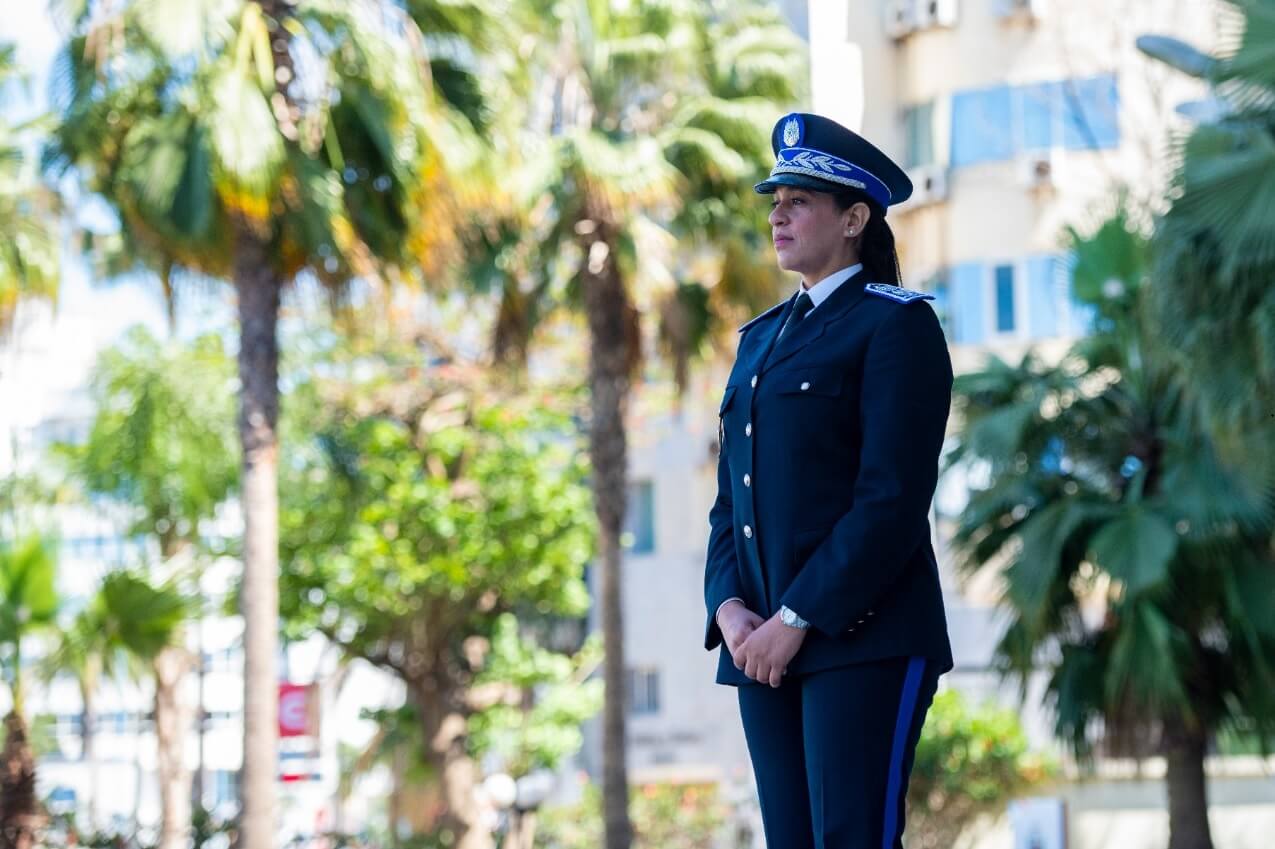In the words of Saliha Najeh: “As police, there are mandatory values and principles that we need to obey. But above all, we need to be human.”
Date:
Saliha Najeh, Chief of the Casablanca prefectural Police Unit for Women Victims of Violence, is committed to making her unit a safe place for women and girls who experience violence across the city.

![]()
The biggest challenge is to help the survivor break free from the fear that is overwhelming her and tell me her story. It takes a lot of courage for her to come and see us, and it takes even more courage to tell me what she has been through. As Police Chief of the Police Unit for Women Victims of Violence in Casablanca I need to learn how to manage the silence. Our role is to give survivors all the time they need to feel safe and comfortable, and for them to trust us enough to tell their story.
When she [the victim] opens up, I need to be very careful and attentive to what she says and how she feels so she can tell me everything. I need her to to trust me and to feel comfortable enough with me to tell me her story. I need every detail for an investigation, especially for rape and other sexual violence cases.
There is a memory of a teenage girl that will always remain with me. She was brought to the unit by her older sibling. I spent all day with her, and after a long silence, she told me her story. She was raped when she was only eight years old. She didn’t blame the perpetrator, who turned out to be her father. I helped her to understand that what he had done to her was a crime. She filed a case against him, and the case went to trial many years later.
My role model is my mother. As a women’s rights activist and a survivor of violence herself, she gave me the strength and determination to work with women who have experienced violence. When I was still at the Royal Police Academy, there was a recruitment drive for the Police Unit for Women Victims of Violence. I was immediately nominated as the Police Chief for the unit in Casablanca. Everyone knew, including me, that this was my destiny.
As part of the trainings delivered by the General Directorate of National Security, in partnership with UN Women, has added value to my knowledge. Each training strengthened my capacity to respond to the needs of survivors of violence.
As police, there are mandatory values and principles that we need to obey, such as neutrality. But above all, we need to be human. When there is a traumatized woman in front of us, we need to be empathetic and make her feel safe. This is a human value that we bring into our work. I am fully committed to working with survivors of violence and bringing them justice.”
UN Women Morocco, with the support of the Government of Canada, supports the justice, police, and social services sectors to improve the quality, availability, and accessibility of essential services for women and girls who are survivors of violence according to international norms and standards.
UN Women, together with UNFPA, UNDP, UNODC and WHO, developed a Regional Flagship Programme to address Violence Against Women and Girls in the Arab States to bridge research with policy recommendations, provide guidance to adapt international standards in service provision to the region, and strengthen interagency understanding and collaboration in areas such as prevention. A key part of the programme includes the recent launch of the Handbook on Gender-Responsive Police Services for Women and Girls Subject to Violence. The handbook is being rolled out by UN Women with police middle managers across the region and gives practical, in-depth guidance on how to respond during crises like the COVID-19 pandemic; prevent violence against women and girls in conflict settings; and tackle online violence.